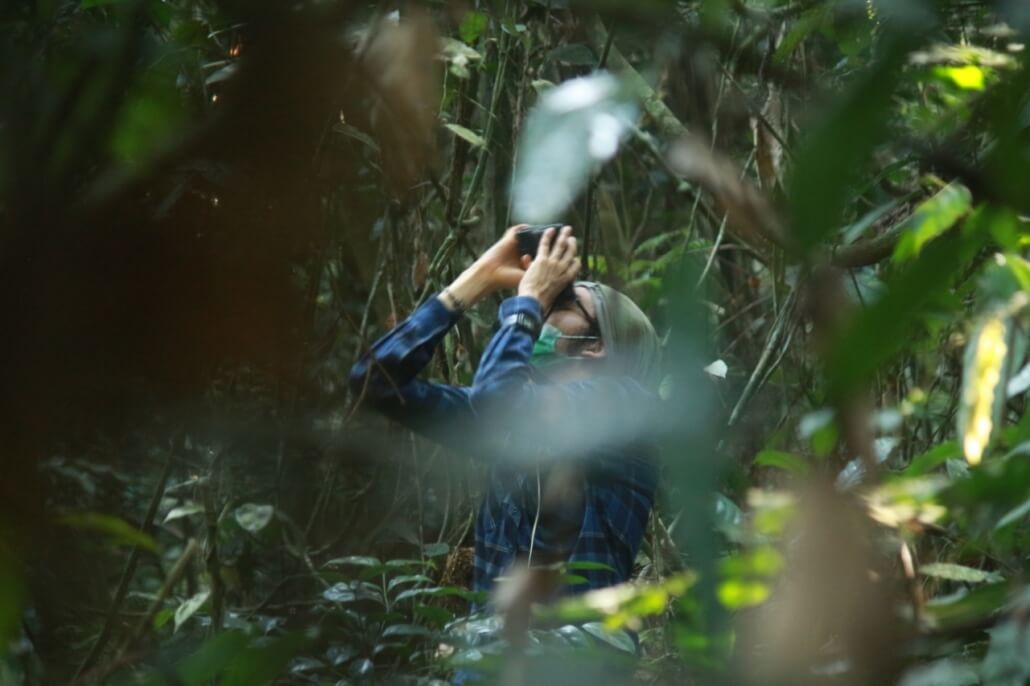In 2019, Juan Corredor, Science teacher for Third and Fourth Decroly, carried out research with primates in the Democratic Republic of the Congo. There he was in charge of studying the bonobos in their natural habitat, a species of apes that are known for having a matriarchal and egalitarian culture.
In the midst of his investigation, Juan realized that a young bonoba confronted a leopard to impress the matriarch, a fact that was observed for the first time by a group of primatologists. This event led him to develop a research article called “First report of a leopard (Panthera pardus)–bonobo (Pan paniscus) encounter at the LuiKotale study site, Democratic Republic of the Congo” published in the specialized research journal “Primates” .
During the XXVII International Congress of Primatology organized by the International Primatology Society (IPS) and the Latin American Primatology Society, which was held in the city of Quito from January 9 to 15, Juan participated as a special guest to develop a conference where he showed the results of his research on the first recorded encounter between a leopard and a group of bonobos.
This study has made it possible to understand that despite the social differences between chimpanzees and bonobos, the behavior towards a predator is similar, making vocalizations, alarm cries and even harassment behavior in the presence of the predator.
Making a comparative parallel and hoping to have more evidence in the future, the researcher suggested that this type of situation could help understand the behavior of different human groups such as the Bantu or the Hadza people, who also harass and even chase possible predators such as lions and leopards, reaching the point of stealing their prey. The study of different hominids such as gorillas, chimpanzees and bonobos, seeks to help understand human behavior and evolution, so this type of study is important to know our origins and the root of our customs and acts.
The Gimnasio Moderno congratulates this teacher, who is a source of pride for the entire community, and invites him to continue his wonderful studies, which are a great contribution to science.





